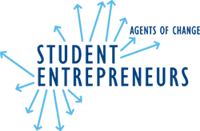James Moseley was in his second year studying maths and computer science at Oxford University when he decided to put his academic knowledge to practical use and set up his own business. In two years his one-man consultancy, which enabled companies to measure the performance of their brand, made a net profit of £30,000.
Moseley, 23, is one of a growing number of students to experiment with entrepreneurship, partly to protect themselves against a shrinking jobs market and partly to help meet the soaring expense of university.
Universities themselves, aware that a degree on its own is no longer a reliable portal into employment, are rallying to support student entrepreneurs by setting up enterprise societies and business “incubators” offering advice and facilities. “Two years ago there were 12 of these across the country; now there are 86,” says Hushpreet Dhaliwal, chief executive of the National Association of College and University Entrepreneurs (NACUE).
A number of entrepreneur societies have already earned lucrative contracts. Students at Essex University have been commissioned by Waitrose to help ex-service personnel back into work, University of Manchester students offer micro-funding and Barking & Dagenham College has generated £120,000 a year from a cafe launched, run and marketed by undergraduates.
Increasing numbers of school-leavers are also turning to business to help secure a future during the economic downturn. Lauren Moulsley, 19, bought an Avon franchise on her 18th birthday after discovering that even Saturday jobs in retail required previous experience. She is now studying events management at Bournemouth University and runs her business on the side, selling Avon products to fellow students. “I don’t get a grant and my maintenance loan doesn’t cover all my costs, so the extra money is essential to get me through,” she says.
Avon franchises require a joining fee of £15 to cover training and equipment and sales representatives earn up to 25% on processed orders during 18, three-week campaigns a year. “Over the last two years, I’ve seen a real boost in people aged between 18 and 24 years old joining my team – 40% of the sign-ups this January were in that age group,” says sales leader Rebekah Testar.
Moulsley, who earns between £50 and £100 a month from an average of 12 hours’ work every three weeks, says the experience has boosted her self-confidence and taught her invaluable marketing and accounting skills, while leaving her sufficient of time to study. “It’s very flexible,” she says. “There are no set hours so I am in control.”
James Moseley’s marketing metrics company exacted a heavier toll on his academic achievements. Due, he reckons, to the three days a week he devoted to running it, he graduated with a 2.2 degree instead of the 2.1 required by his conditional job offer from PwC. However, his entrepreneurial experience so impressed that he was recruited anyway by the accountancy firm which now runs a scheme, Inspired Talent, to identify applicants whose mediocre degree result might mask commercial flair.
“It is getting harder for employers to distinguish between the mass of degree qualifications in the jobs market at the moment,” says Sonja Stockton, PwC’s head of recruitment. “By combining rigorous online assessments, with the opportunity for candidates to build a personal business case, we assess applicants ‘in the moment’, rather than relying on historical academic performance.”
Moseley’s business is now dormant while he expands his experience at PwC, but he reckons the experience – and the income – was invaluable. His overheads were small since he needed only a laptop and a printer to launch, but he says money should not be the primary concern. “The time commitment is more important than the financial commitment because you have to balance the business with your academic and social life,” he says. “You’ve got to know what you’re letting yourself in for.”
Source: guardian.co.uk




